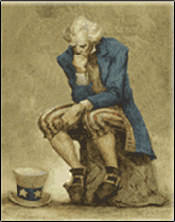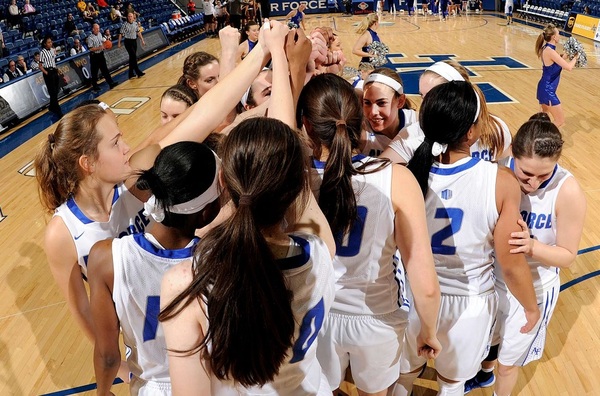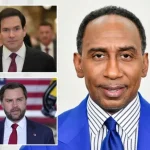
–>
February 7, 2023
Last October I was asked by the Nevada Policy Research Institute to appear on a panel discussion sponsored by the Vegas Voice to present arguments against the three proposed amendments to the Nevada Constitution. Overall, it’s important that constitutional amendments aren’t just good ideas or great policies, but fundamental principles. A constitutional amendment must be a foundational concept that must never be violated under any circumstances. America should have learned this lesson with Prohibition, arguably a good law but a very bad constitutional amendment because it didn’t represent a basic American value. Rather, it represented an extreme position on a difficult situation occurring in America at the time. I always considered it an embarrassment that our Constitution now has two amendments, the Eighteenth and the Twenty-First, that cancel each other out on this issue.
‘); googletag.cmd.push(function () { googletag.display(‘div-gpt-ad-1609268089992-0’); }); }
The first proposed amendment, in Nevada election parlance referred to as Question 1 on the ballot, reads in its entirety, “Equality of rights under the law shall not be denied or abridged by this State or any of its political subdivisions on account of race, color, creed, sex, sexual orientation, gender identity or expression, age, disability, ancestry or national origin.”
My first argument was that we already have the Fourteenth Amendment to the U.S. Constitution that states, “No state shall make or enforce any law which shall abridge the privileges or immunities of citizens of the United States; nor shall any state deprive any person of life, liberty, or property, without due process of law; nor deny to any person within its jurisdiction the equal protection of the laws.” Given that this covers equal protections for all citizens, it renders any state laws and other laws moot.
However, the Nevada proposed amendment had a serious problem. Since the Nevada amendment calls out people with specific characteristics to be protected, the implication is that people with other characteristics are, by their absence, not necessarily equally protected. Laws are read that way. When a law is written with specific lists of items, any items that could have been listed, but were not listed, are assumed to have been considered and denied application of the law. Special language is needed to include non-listed items. In patent law, for example, the term “comprising a, b, and c” is used to mean including a, b, and c but can include other things as well. Alternatively, the phrase, “including but not limited to” is often used. When a list is finite with no language that can be understood to expand the list, nothing outside the list is necessarily covered, and because other things must have been considered, the law probably does not apply to those other things. This means that this  proposed amendment probably does not cover discrimination, for example, against people because of their weight, height, ability (different than disability), education, criminal record, appearance, or health. Most importantly, it probably does not cover discrimination against people due to their religious, scientific, or political beliefs. I only say “probably” because sometimes the courts reinterpret laws, but only after a lawsuit is brought that, for a constitutional amendment, would need to go up to the Nevada Supreme Court.
proposed amendment probably does not cover discrimination, for example, against people because of their weight, height, ability (different than disability), education, criminal record, appearance, or health. Most importantly, it probably does not cover discrimination against people due to their religious, scientific, or political beliefs. I only say “probably” because sometimes the courts reinterpret laws, but only after a lawsuit is brought that, for a constitutional amendment, would need to go up to the Nevada Supreme Court.
‘); googletag.cmd.push(function () { googletag.display(‘div-gpt-ad-1609270365559-0’); }); }
The speaker in favor of the amendment simply said things about the amendment being fair and needed to protect certain underrepresented or underserved minorities from discrimination.
When it came time for the Q & A, the first question was, what does “gender identity or expression” mean? The other speaker said it simply means how someone feels or identifies. This circular reasoning is illogical without some concrete definition of “gender,” but those on the woke left claim that questioning the term is in itself “harassment” and/or “phobia.” So the term has no definition. If you feel you are a particular gender, you are. And if someone questions your feeling, then that person might be punished under this new amendment.
The second question was whether this amendment would allow boys to play on girls’ sports teams. I responded with some thought experiments. Do you think there are athletes who would do anything possible to win an event? I know this seems absurd, but I wonder if there have ever been any professional athletes who would risk their careers, and their commercial endorsements, by taking performance-enhancing drugs just to win an event. Probably not, but if there were one such person ever, in all of sports history, then some boy will probably identify as a girl just to play in a girl’s league.
Another ridiculous example also came to mind. If one contender for an Olympic medal — say, figure skating, just to illustrate the point — would hire someone to physically assault her competitor — hypothetically, bash her knees in with a metal bar and send her to the hospital — risking jail time and a permanent ban from figure skating just to win a medal, then yes, some boy will probably identify as a girl just to play in a girl’s league. Fortunately these imagined situations are laughable and so we shouldn’t even think about it.
Unfortunately, the amendment passed and is now part of the Nevada constitution. However, there actually is a bright side. Women’s sports in Nevada should, and must, make a sudden leap forward in record-breaking and fan attendance. Since the new amendment doesn’t provide any definition for “gender identity or expression,” it only makes sense that girl’s teams should recruit boys who identify as girls. This can be done openly. A boy may identify as a girl permanently or only during times of practice and actual competition. It doesn’t require medical treatments, hormone therapy, psychotherapy, or surgery. It doesn’t even require dressing in a certain manner, particular hygiene habits, or specific (stereotypical) behaviors. It just requires feeling a certain way.
I hope that girls’ sports team coaches think this through and do the right thing. After all, a coach who turns away even one biological male who identifies as a girl could receive a fine, lose employment, and even be thrown in jail.
‘); googletag.cmd.push(function () { googletag.display(‘div-gpt-ad-1609268078422-0’); }); } if (publir_show_ads) { document.write(“
Bob Zeidman is the founder of technology firms Zeidman Consulting and SAFE Corporation. His latest novel is Animal Lab, an update of Orwell’s Animal Farm.
Image: National Archives
<!– if(page_width_onload <= 479) { document.write("
“); googletag.cmd.push(function() { googletag.display(‘div-gpt-ad-1345489840937-4’); }); } –> If you experience technical problems, please write to [email protected]
FOLLOW US ON
<!–
–>
<!– _qoptions={ qacct:”p-9bKF-NgTuSFM6″ }; ![]() –> <!—-> <!– var addthis_share = { email_template: “new_template” } –>
–> <!—-> <!– var addthis_share = { email_template: “new_template” } –>






